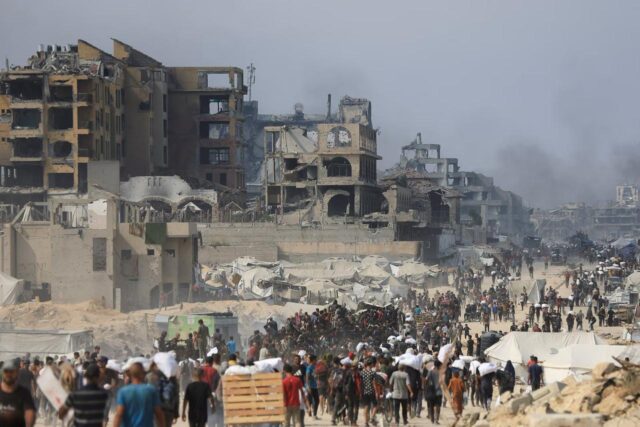Two of Israel’s closest allies, the United Kingdom and France, have announced that they will formally recognise the State of Palestine in September. The decision marks a notable shift after months in which many Western leaders, while condemning civilian casualties, maintained trade ties with Israel and, in some cases, cracked down on pro-Palestinian protests.
The move will place London and Paris among 149 of the 193 United Nations member states that already recognise Palestine, following countries such as Spain and Ireland, which have consistently spoken out against the crisis in Gaza. It also comes amid intensifying humanitarian concerns, with aid blockades, mass displacement, and civilian deaths mounting since October 2023.
The moral debate surrounding Palestine is long-standing. Experts have likened aspects of the current oppression to historical atrocities, including the genocide between 1933 and 1945. Then, the UK and France were among the first to confront Nazi Germany though in 1939, their decision was largely motivated by the geopolitical imperative to protect Poland. Today, both governments frame their stance on Gaza as a matter of moral outrage.
Yet the crisis is far from new. Since last October, the death toll in Gaza has exceeded 60,000, while UN agencies have repeatedly warned of famine conditions caused by restrictions on humanitarian aid. The suffering of Palestinians has been a decades-long reality, and recognition alone is unlikely to address the root causes.
Unlike the 1930s, today’s political landscape features sustained public pressure, with large-scale protests across capitals and growing calls from international bodies such as the International Court of Justice for urgent action.
Recognition of Palestinian statehood by two major European powers is politically significant and diplomatically symbolic, but history suggests it is only a first step. Without concrete measures from ensuring unimpeded humanitarian aid to holding all parties accountable under international law the danger remains that such recognition will amount to a symbolic gesture rather than a turning point.
(This article was written by Tisya Sharma, she is an intern at StratNewsGlobal)





